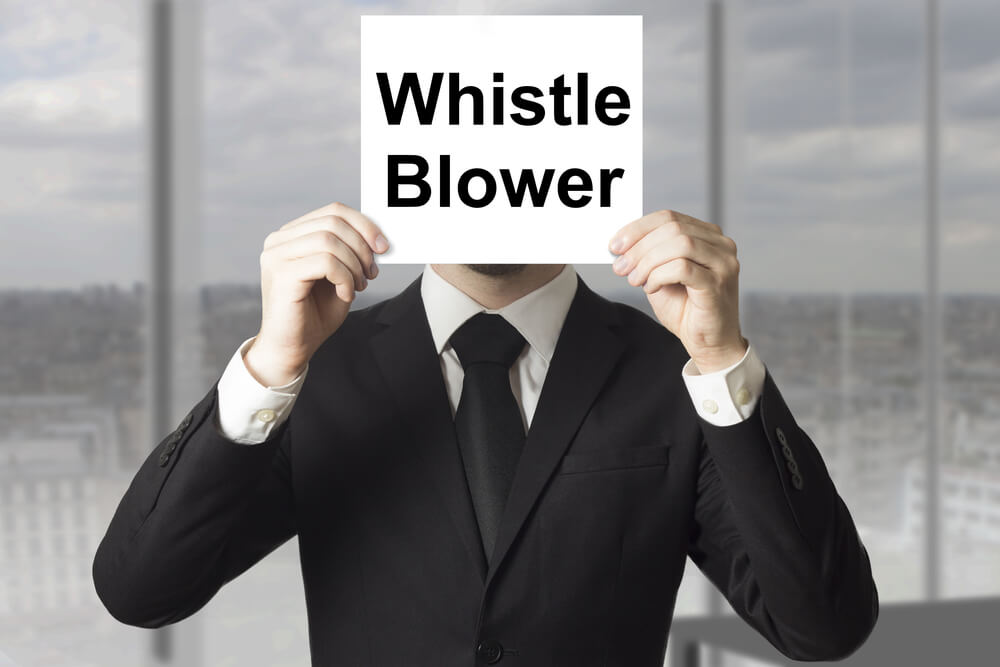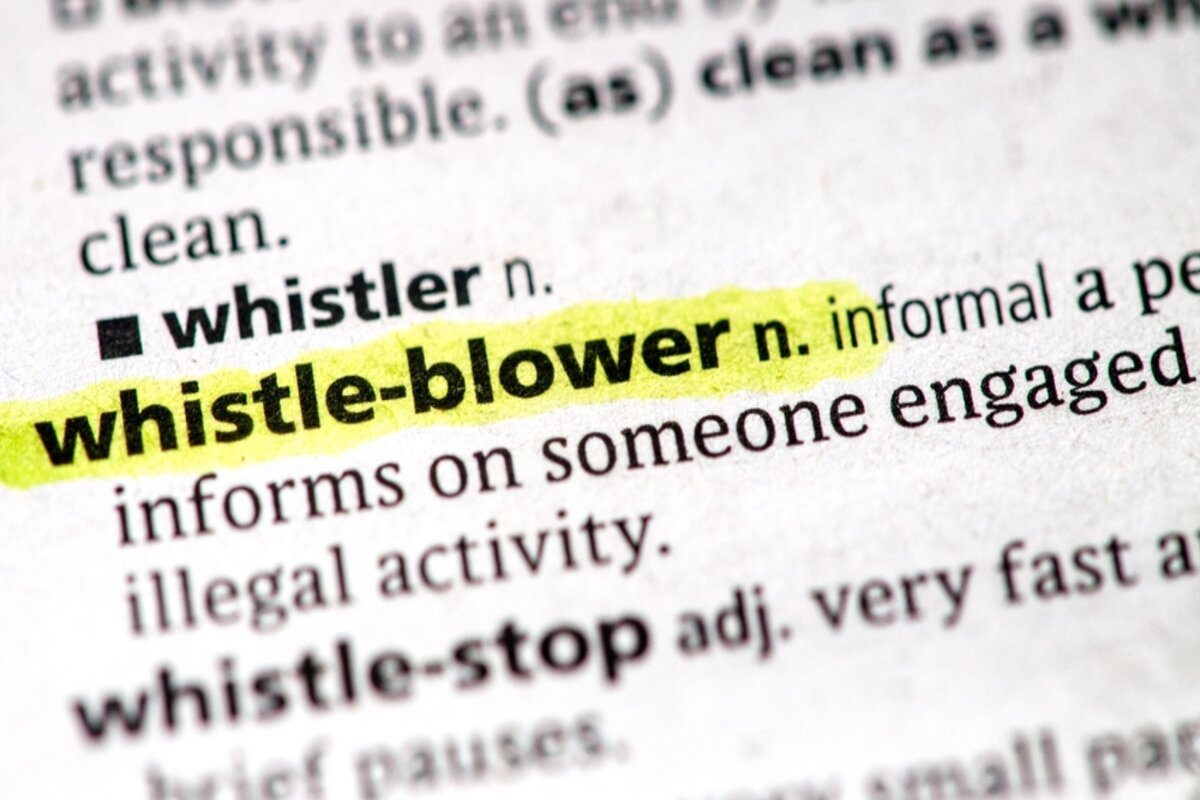When employees discover potentially unethical, illegal (or just plain stupid) company conduct, MSB Employment Justice highly recommends speaking to one of our attorneys who’ve been handling these complex whistleblower cases for decades. Deciding to call out the potentially illegal conduct of an employer is not for the faint of heart. When a brave employee chooses to do so, they put themselves, their careers, and their reputations at risk. Due to many potential whistleblowers’ high moral compass—many feel that the choice to act is no choice at all.
Understanding What “Blow the Whistle” Means
Because there is no “un-ringing the bell,” it’s paramount for an employee thinking about blowing the whistle to do it right by acting carefully and deliberately to ensure that if something bad happens to the whistleblower afterward (like a demotion or termination, which is illegal and constitutes retaliation) the whistleblower is protected. In our world, we call this “engaging in protected conduct,” which is our attorney way of saying the employee in question actually “blew the whistle” and would be protected from illegal retaliation. An example would best illustrate this point:
Scenario
One Alison Academic thinks Professor Pete’s research project on the 2020 election is biased and favors one political party over the other. Professor Pete’s research project has a disclaimer on the cover page that discloses the project is partially funded by the political party that is being favored, which Alison is aware of. Nevertheless, Alison writes an email to the head of the Department that Pete is engaged in unethical conduct. Alison is then demoted by Pete.
Scenario Two
Barry Broker suspects that Paul Ponzi’s hedge fund is defrauding their investors. Barry decides to research the issue and confirms that his suspicions are true. Barry writes an email to Callie Coworker on the subject and how he came to discover this “illegal” activity. Callie alerts Paul to the email and Paul proceeds to terminate Barry for “poor performance”—despite Barry never having received a bad review or discipline.
Seeking Legal Guidance Is Crucial
As you’ve probably guessed, under all whistleblower laws (including the Minnesota Whistleblower Act) that MSB Employment Justice is aware of, Barry (but not Alison) would be protected from illegal retaliation. That’s why it is important to speak with a lawyer to make sure that if you are thinking about blowing the whistle, you do it the correct way to make sure your rights are protected in the event of retaliation (and, of course, to optimize the possibility that the employer will change its conduct as well).
Tips to Consider After You Suspect Illegal Conduct
As stated above, contacting an employment law attorney as soon as possible after you discover and before you report illegal conduct is advised. In addition to that, here’s a list of subsequent steps to consider:
- Gather evidence of the illegal conduct and be a documentarian: If you’ve learned about illegal or wrongful conduct by your employer, it’s likely because of something you witnessed or discovered while on the job. This is the evidence you’ll need to show your lawyer, law enforcement, or agency representatives to support your claims. Make no mistake, your employer will deny all wrongdoing—no matter how strong the evidence is that you possess. And bear in mind, not all evidence is created equal. The stronger the evidence, the better your case. All of this could lead to money in your pocket if you are retaliated against after your report—so keep all those emails, documents, handwritten notes, texts, recordings, and photos that show the wrongdoing!
- Follow internal reporting procedures: Many larger corporations have established policies and procedures advising employees of the steps they should take if illegal conduct is suspected or recognized. More often than not, this process is located in the company’s Employee Handbook and could involve reporting the activity to your immediate supervisor, the human resources department, or a designated ethics hotline or email inbox. Ensure you maintain a record of all communications and actions taken—especially with the ethics hotline or inbox because sometimes the employee is not provided with a record of the email or call.
- Gather evidence and document any retaliation: I wish I could report that blowing the whistle on your employer in an honest attempt to cure illegal conduct through the proper internal methods would result in a pat on the back and declarations of a job well done. But this is not a perfect world. Employers often have vindictive and angry reactions. And the manager or employee implicated will almost always respond viscerally to the accusations made against them. Thus retaliation against you for your whistleblower report can take place. Beyond the obvious (like being terminated or demoted), retaliation can take other forms such as: an undesirable transfer or assignment; being excluded from meetings; a negative performance review or undeserved discipline, and; being harassed or called names. The truth is that you will know how it feels when it happens. Be diligent in documenting these instances of retaliation or any negative changes. Doing so could lead to a more significant monetary settlement or reward if your case goes forward.
Conclusion

The Minnesota Whistleblower Act (and other statutes federally and in other states) protect employees who do the right thing to make sure that the law is being followed. However, like all legal matters, there are complicated loopholes and technical rules to navigate. Fortunately, the attorneys at MSB Employment Justice have years of experience holding massive corporations accountable for their unlawful retaliation. We’ve recovered millions of dollars in compensation for individuals who’ve had the courage to do the right thing. If you’re experiencing retaliation or discrimination in the workplace, one of MSB’s experienced whistleblower attorneys can guide you through the process of seeking the justice you deserve. There’s no cost to you unless we win. Contact MSB Employment Justice today to speak with our experienced legal team.



